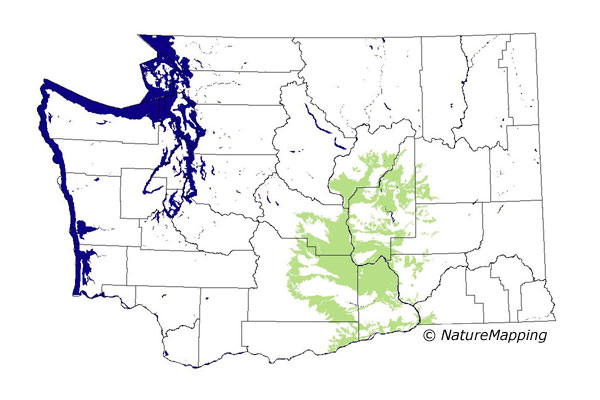 |
Metadata (Data about data or how the map was made)
Legend:
 = Core Habitat
= Core Habitat
 = Marginal Habitat
= Marginal Habitat
Predicted Distribution
Reptiles do not migrate as some birds and mammals, so the colored areas depict
the predicted range for the Striped Whipsnake year-round. The habitats were
identified using 1991 satellite imagery, other datasets and experts throughout
the state, as part of the Washington Gap Analysis Project.
Other
maps & Information:
|
Distribution and Habitat Requirements
Distribution and Habitat Requirements
This species occurs in grasslands, sagebrush flats and dry rocky canyons. It can be found in open expanses, sagebrush and rocks
preying on lizards, small mammals and insects.
Models
The Columbia Basin ecoregion was selected, and the Central Arid Steppe zone was core.
Good habitats were talus slopes, cliffs, grasslands, shrub savannas and shrublands.
Translated from the Washington Gap Analysis Amphibians and Reptiles Volume by Karen Dvornich
Webpage designed by Dave Lester.